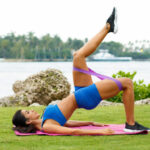
6 Lifestyle Choices That Help You Lower Cholesterol
Cholesterol is an important constituent of cell membranes and it supports many different functions in the human body. Nonetheless, high levels of cholesterol can lead to serious health issues, including increased risk of heart disease and heart attacks. While HDL (high-density lipoprotein) can actually help you prevent disease by transporting cholesterol away, LDL (low-density lipoprotein) allows cholesterol molecules to latch onto the arteries. Making the right lifestyle choices can help you keep HDL and LDL cholesterol at optimal levels and protect yourself from atherosclerosis. Here is list of the best way to lower cholesterol with taking medications.
1. Eat the Right Kind of Fats
Not all fats are created equal. The important thing is to eat more of the right kind and eliminate food that can elevate your cholesterol levels very quickly. Try to avoid saturated and trans fats as much as possible. Saturated fats are found in red meat and full-fat dairy products, and they are usually responsible for raising total cholesterol beyond normal. What’s more, you should definitely stay away from trans fats. You find them in products such as margarine, cakes, cookies, and crackers. The problem with this type of fat is that the human body cannot process it properly. The result is an increase in LDL cholesterol. Look out for food labels that say “partially hydrogenated vegetable oil”.
On the other hand, monounsaturated fats are highly beneficial, since they decrease LDL while protecting HDL cholesterol levels. They also reduce lipoprotein oxidation, shielding your arteries from clogging. Foods high in monounsaturated fats include olives, olive oil, canola oil, avocados, almonds, walnuts, and cashews, among others. Polyunsaturated fats, especially omega-3 fatty acids have several health benefits, as well. While they don’t affect LDL cholesterol directly, they can protect your heart and diminish the risk of coronary heart disease. You will find omega-3s in certain types of fish and seafood, fish oil supplements, seeds, and tree nuts.
2. Increase Your Fiber Intake
Adding more fiber-rich foods to your diet is one of the best ways to keep cholesterol from going up. Foods high in fiber not only help you feel full longer, thus preventing hunger pangs and cravings, they also assist in maintaining a healthy digestive system. Furthermore, fiber is not digested in the stomach, but absorbed by certain intestinal bacteria called probiotics. These helpful bacteria reduce the amount of LDL lipoproteins present in the bloodstream. Some of the best sources of fiber are legumes, such as beans and lentils, fruit (apples, pears, prunes are great choices), whole grains, and oats.
3. Manage Your Weight
Being overweight walks hand in hand with high cholesterol levels. Dieting, on the other hand, affects the way the body produces and processes cholesterol. A well-thought diet plan will help you lose those extra pounds, but also contribute to the absorption of cholesterol and decrease the production of new lipoproteins. When it comes to eating right, quality is as important as quantity. Remember to avoid foods high in saturated fat, such as chips, cookies, full-fat dairy products, and fatty meats. Opt for fruits, vegetables, lean meat, nuts, and seafood to balance your HDL and LDL cholesterol.
4. Increase Physical Activity
Apart from dieting, regular exercise is one of the most important lifestyle changes for lower cholesterol levels. If possible, try to engage in some form of exercise most days of the week. Physical activity increases the beneficial HDL lipoproteins while it keeps LDL at normal levels. A moderate 30-minute workout five times a week will do wonders. However, higher intensity and longer workouts provide more benefits. You could even take up a new sport you’ve always wanted to try. If you have a busy schedule, try to incorporate physical activity in your daily routine in small ways. For example, you could take a brisk walk on your lunch break, walk up some stairs or ride your bike to work every morning.
5. Drink Alcohol in Moderation (If at All)
Ethanol, an important ingredient of alcoholic drinks, can increaseHow to Raise HDL Naturally and Lower Risk for Heart Disease.cholesterol and reduce the risk of heart disease. However, the amount of alcohol consumed must be very small to avoid damage to the liver. The recommended daily limit is one drink for women and two for men. Anything more than that actually does more harm than good.
When it comes to alcoholic beverages, red wine is probably one of your best options since it is rich in polyphenols. These are antioxidant compounds that protect the blood vessel lining from becoming blocked by cholesterol. Wine can only be beneficial as part of a healthy diet in combination with regular physical activity. However, its positive effects are too minor to recommend it to people who don’t already imbibe.
6. Quit Smoking
Smoking has many adverse effects on how the human body handles cholesterol. It decreases HDL, the “good” cholesterol while LDL levels are left unchecked. Moreover, it affects the immune cells that transport cholesterol molecules to the liver, making them less efficient. As a result, there is more cholesterol clogging the arteries and faster progression of atherosclerosis. On the other hand, quitting smoking has several benefits that can become apparent right away. There is lower blood pressure, better blood circulation and heart rate, as well as improved lung function. In addition, after a year of being cigarette-free, your risk of heart disease is reduced by half.
Overindulging in too much french fries and hamburger might be the reason for your high cholesterol.No one can deny that changing lifelong habits isn’t easy. It takes a lot of effort and patience to create and maintain a healthy way of life. The key is to start small. Begin with one area you can improve and work from there. Making the right lifestyle choices will help you lower cholesterol and become a healthier, fitter, and a more energetic version of yourself. Just remember to consult your doctor before any drastic changes to your diet or physical activity.
Sources
Mayo Clinic Staff. “Top 5 lifestyle changes to improve your cholesterol”. mayoclinic.org, Mayo Clinic, 11 Aug. 2018, mayoclinic.org/diseases-conditions/high-blood-cholesterol/in-depth/reduce-cholesterol/art-20045935. Accessed 5 Oct. 2018.
Theobald, Mikel. “10 Lifestyle Choices to Lower Cholesterol”. everydayhealth.com, Ziff Davis, LLC, 17 Sept. 2012, everydayhealth.com/hs/healthy-living-with-high-cholesterol/lifestyle-choices-to-lower-cholesterol/.Accessed 5 Oct. 2018.
Thorpe, Matthew. “10 Natural Ways to Lower Your Cholesterol Levels”. healthline.com, Healthline Media, 11 Dec. 2017, healthline.com/nutrition/how-to-lower-cholesterol. Accessed 5 Oct. 2018.
